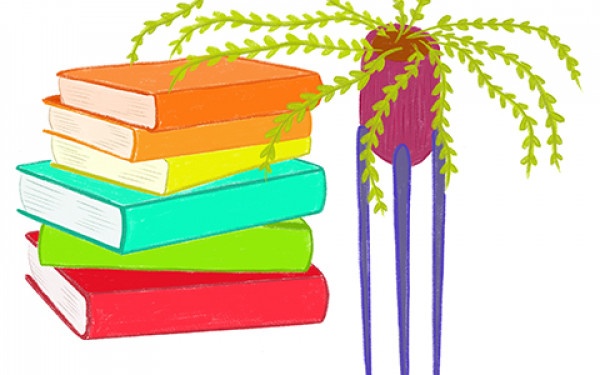Turkish and Syrian Students Mobilize After Earthquake
Concordia Students Mourn Tragedy, Raise Thousands in Aid
“Every time I open my social media, all I see is people outside their houses—people asking for help,” expressed Karam Helou. As a member of Concordia’s Syrian Students’ Association, he has followed the news in devastation, 7,000 kilometres away from his home country.
Although his family lives in Damascus, Syria’s capital and a region fortunately safe from the disaster, he explained how much the Syrian community in Montreal is concerned for those trapped in the rubble. “It happened after a twelve-year war, so you can imagine the mental and physical damages,” Helou said.
For Jana Al-Atassi, a fellow member of the SSA, there is a feeling of guilt overwhelming her. “As a Syrian who lives outside the country, you feel like you don't deserve what you have because it could have been you,” she said. “The people who are suffering are literally my people.”
On Feb. 6, a 7.8 magnitude earthquake struck southeastern Turkey and northwestern Syria. A series of aftershocks quickly followed. The region was hit with a second earthquake with a magnitude of 6.3 on Feb. 20. The disasters have caused over 46,000 deaths at time of writing.
Beyond the loss of life, the impacted areas are still suffering from a lack of access to primary needs such as water, electricity, food and medical assistance.
Following the tragedy, Turkish and Syrian Montrealers have been in a state of mourning. In the face of despair, Concordia students from these communities have banded together to gather resources and send aid back home.
“We see this and we realize how many people are affected by the earthquake,” said Mert Kaan Kaşeler, president of the Turkish Student Association of Concordia University. “Whether it's the people who died, whether it's the people who are underneath what's left of a building or even the survivors, they have lost their homes, they have lost [their life savings].”
Across Montreal, schools, mosques and non-governmental organizations have mobilized since the moment they learned of the earthquake. They all share one goal: supporting the victims.
On Feb. 7, the Canadian government announced it will provide $10 million in humanitarian aid for the areas affected by the disaster and will allocate “approximately $50 million in humanitarian aid to Syria for 2023.”
In partnership with the different humanitarian branches of the United Nations, Canada has begun assisting in the distribution of shelter, heating and food to ensure the survival of rescued people.
However, getting aid to reach Syrians suffering from the earthquake has been challenging.
Since the beginning of the ongoing civil war in 2011 that followed uprisings against President Bashar al-Assad, numerous international economic sanctions have been imposed on the country. This is due Assad’s massive use of violence from police and military forces against his political opponents.
Early in the conflict, Canada imposed restraints on the Syrian economy. These currently include asset freezes, export and import restrictions, financial bans, technical assistance bans and an arms embargo.
“As a Syrian who lives outside the country, you feel like you don’t deserve what you have because it could have been you. The people who are suffering are literally my people.” — Jana Al-Atassi
Stuck between the restraints of wartime measures and the consequences of the earthquake, international organizations have struggled to send help to the affected areas.
In light of the mass casualties, the international community—including the United States—is gradually exempting Syria from the sanctions imposed over the last decade. American sanctions have been lifted for a period of 180 days to facilitate the entry of aid and assist in reconstruction.
One of the biggest issues in getting resources to victims has been the location of the earthquake. It took place in Syria’s opposition zone currently resisting Assad in the war. This has made it difficult for organizations to obtain approval from the government to utilize its border crossings with Turkey.
“It's sad that politics has to be in the way of helping people, but this is the sad reality. I think anyone with the right mindset [should] put politics aside and just help the dying people,” said Al-Atassi.
Following the earthquake, Turks and Syrians have been mourning the loss of life in their respective countries by joining forces to gather aid in support of the victims and their families.
On Feb. 10, McGill’s Syrian Students’ Association organized a candlelight vigil to give mourners an opportunity to pray for the victims and think about those who lost their loved ones.
In order to show their support and solidarity, the SSA and the TSA have been hands-on in organizing fundraisers. The donations they have received surpassed their expectations thanks to the generosity of their fellow students, organizers said.
The TSA has been in collaboration with the Turkish consulate in Montreal. They organized a donation drive where students could bring clothes, hygiene products, blankets, flashlights and other essentials. All donations made during the campaign were sent through Turquebec.
The association created a GoFundMe whose funds will be entirely donated to the organization AHBAP. Thanks to the numerous donations, over $6,000 has already been raised. “They are [very] transparent with their operations on the zone right now; they are sharing all of the progress,” said Kaşeler.
The SSA has chosen to split its donation fund between the Molham Volunteering Team and the Aleppo Fund. “This is still tricky because of the laws and policies that are imposed on these foundations. Our main goal is to be able to reach everyone who is in need to get as much help for them as possible” said Al-Atassi.
"Monetary donations are more likely to make a bigger impact because they will be more on the spot,” Kaşeler added. “They will be spent on whatever is necessary at that time. Every dollar counts.”
This article originally appeared in Volume 43, Issue 12, published February 21, 2023.




_600_375_90_s_c1.jpg)
_600_375_90_s_c1.jpg)

_600_375_90_s_c1.jpg)